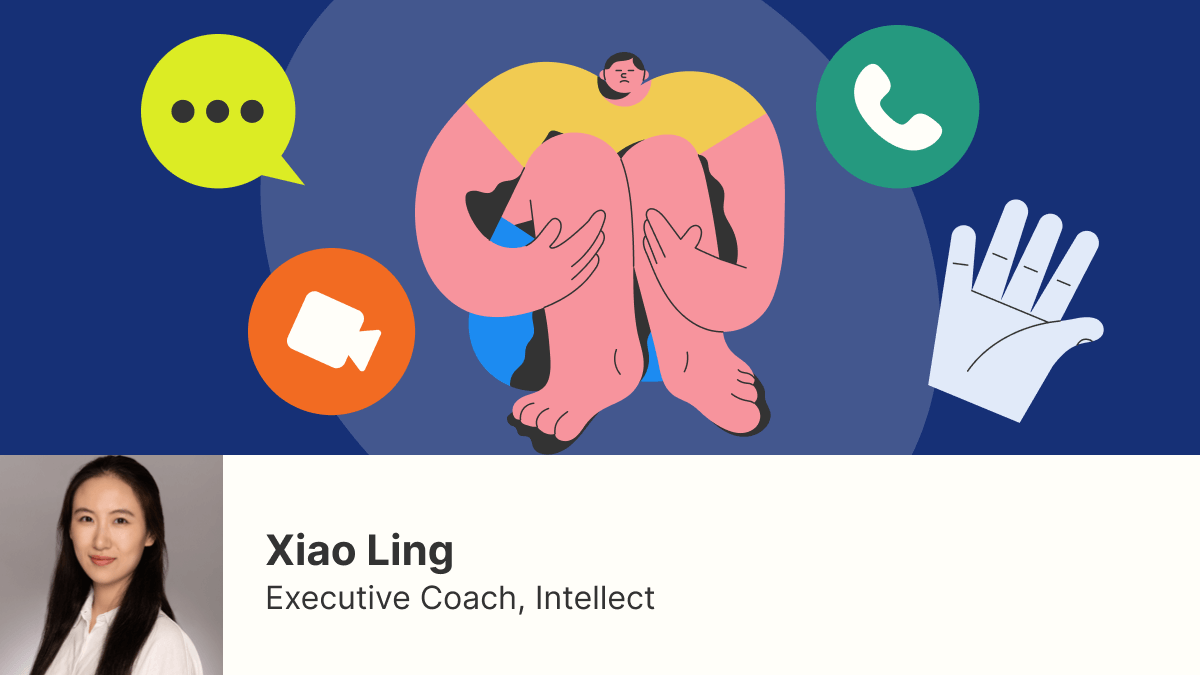These days, it’s not uncommon for the term “social anxiety” to be used colloquially, often to describe feelings of unease or shyness in social situations. However, true social anxiety is more than just feeling shy.
What is social anxiety?
Unlike introversion, which is a personal preference for solitude and quietness, social anxiety is a clinical condition that can cause significant distress.
Some introverts may feel perfectly capable of social interactions in public settings, but they just simply don’t enjoy them as much as extroverts. Social anxiety, on the other hand, is not a result of a preference, but goes beyond the lack of enjoyment an individual derives from social settings.
Here are some symptoms of Social Anxiety Disorder (SAD), according to the DSM-5:
1. You experience intense fear of or anxiety about possible scrutiny or negative evaluation by others in social situations.
2. These feelings are out of proportion, considering the actual threat posed by the social situation or sociocultural context.
3. You endure these situations with intense fear or anxiety, or shy away from them altogether.
4. The fear, anxiety, or avoidance has persisted for at least six months and affected everyday life.

In some cases, you may also observe somatic symptoms such as sweating, heart racing, shortness of breath, and chest tightness. Importantly, these feelings of overwhelm cannot be attributed to the use of substance, a medical condition, or another mental disorder.
How social anxiety shows up at work
Social anxiety doesn’t just affect personal relationships. Its impact within professional settings is equally concerning.
For some, simply being present in the office environment can evoke intense nervousness and worry. People with social anxiety may find themselves spending hours in the office wondering:
- “Do I look professional today?”
- “Am I talking too much or too little? Too fast or too slow?”
- “Are they looking at me? Are they talking about me?”
- “Why are they looking at me? What are they thinking of me?”
- “Did I just say the right/wrong thing?”
But social anxiety is more these annoying voices in your head. From struggling with day-to-day tasks to barriers in career progression, its ramifications can pose considerable challenges to individuals in roles where collaboration and communication are highly valued.
- Procrastination in day-to-day responsibilities: Individuals with social anxiety may dread simple tasks such as making phone calls or attending group meetings, sending them into the deep trap of procrastination – a form of avoidance. Consequently, they can be perceived as unresponsive, uncollaborative, or lacking in initiative.
- Struggles with people-centric roles: Unhelpful thinking patterns may lead people to interpret clients’ and colleagues’ behaviours and feedback as a personal indictment, influencing their decision-making and jeopardising professional relationships.
- Impediment in career growth opportunities: Fear of scrutiny judgement may lead to avoidance of public speaking tasks, client-facing presentations, or leadership roles, hindering individuals’ career growth and learning.
- Closed communication channels: Being concerned about others’ responses, one can avoid initiating conversations about their career aspirations, or discussing their professional needs or expectations. This avoidant approach makes it difficult for their voices to be heard.
- Self-fulfilling prophecy on isolation: Individuals with social anxiety may also withdraw from team-building activities or decline invitations to after-work social gatherings. This self-imposed isolation not only reinforces unhelpful beliefs about oneself (e.g. “people will find me socially awkward and won’t want to be friends with me”) but also shakes the collaborative foundations for professional development in the long run.

If you identify with these struggles, you’re not alone. Studies have shown that Social Anxiety Disorder has a worldwide prevalence of 5 to 10%—a figure that has likely risen since the pandemic ushered workforces into their home offices and deprived them of in-person contact in 2020.
How to overcome social anxiety with CBT
Fortunately, there are ways to overcome social anxiety. Cognitive Behavioral Therapy (CBT), for example, is an evidence-based treatment that helps clients recognise the connections between their thoughts, behaviours, and feelings. This awareness goes a long way in developing more adaptive responses in social settings at work.
Below are four elements of CBT that could help individuals with social anxiety thrive at work.
1. The ABC Model
The ABC model from Cognitive Behavioral Therapy breaks social situations down into three components:
- A – Activating events or situations: When, where, what happened? (e.g. Having a presentation meeting with clients)
- B – Beliefs: What were the thoughts going through your head at the moment? (e.g. “People must have noticed how nervous I sound. They must think that I’m incompetent for this role. I’m gonna lose my job soon.”)
- C – Emotional or Behavioural Consequences: How did you feel? What did you do or say? (e.g. Feeling nervousness, fear, anxiety, and self-doubts; Leaving the meeting room as quickly as possible after the meeting and avoiding further discussions.)
Through this framework, you can put a finger on the beliefs that cause anxious responses.
2. Psychoeducation on cognitive biases
With an increased awareness of the “B” beliefs, we can identify your unhelpful thoughts and their underlying cognitive biases more easily.
Cognitive biases are patterns of thinking that lead to biased perceptions or interpretations of situations. Some common examples of cognitive biases include:
- Catastrophising: “I fumbled when answering my boss’s question. They’re going to think I’m incompetent and fire me.”
- Overgeneralisation: “I made this careless mistake again. I’m always making mistakes.”
- All-or-Nothing/Black-or-White Thinking: “I can do nothing right.”
- Personalisation: “This new client would’ve signed the contract with our team if I spoke more confidently. It’s all my fault.”
- Mind-Reading: “I forgot to greet the receptionist this morning. Now she must think I’m rude.”
With psychoeducation, you can work on modifying these biases and developing more balanced and accurate ways of thinking.

3. Cognitive reframing
Once you are familiar with your “go-to” cognitive biases, you can catch them as they are unfolding rather than treating them as the absolute truth. With enough practice, you could even replace unhelpful thought patterns with more realistic alternatives that can help you respond more adaptively in social situations.
Here are some examples:
- Thought: “I forgot to greet the receptionist this morning. Now she must think I’m rude.”
- Bias: Mind-Reading
- Alternative: “I typically greet her most mornings. I can’t know for sure what she’s thinking or feeling. I can always say hi and catch up with her later if I want to.”
4. Behavioural experiments
As we have a clearer picture of the “B”, we can start designing a series of experiments to test some assumptions about oneself and others. Through these experiments, we aim to collect real-world data and revise biassed assumptions.
For instance:
- Assumption to test: “People will find me boring and walk away when I start talking.”
- Old behaviours: Keeping quiet in group discussions
- New experimental behaviour: Making comments and giving feedback in one group meeting
- Anticipated outcome: People may ignore the comments and continue the conversation without acknowledging my input.
- Observed outcome: People responded to my comments positively and showed interest in my thoughts.
Social anxiety can make certain tasks at work difficult, especially if you’re in a client-facing role. However, with CBT interventions and consistent practice, you can effectively manage social anxiety and have a fulfilling professional life.
When it comes to CBT interventions, consistent practice is key. Outside of coaching, counselling, or psychotherapy sessions, individuals can utilise resources on the Intellect app such as relaxation techniques, self-compassion exercises, thought records, and reflection journals to maintain their progress.
A word from Intellect Clinic
Suspect that you have Social Anxiety Disorder? Don’t rely on self-diagnosis—reach out to Intellect Clinic for a thorough mental health evaluation using evidence-based tools and methods.
Whether you get diagnosed or not, our counsellors or clinical psychologists can help you bring calm into social situations and even grow to enjoy them. Intellect Clinic offers affordable counselling and therapy sessions in two central locations. With same-week appointments available, you can begin your journey towards healing and personal growth without delay.
Plus, if you feel that your current therapist isn’t the right fit, we’ll work closely with you to understand your preferences and find another therapist who aligns better with your needs. Your mental health journey is unique, and we’re here to support you every step of the way.








